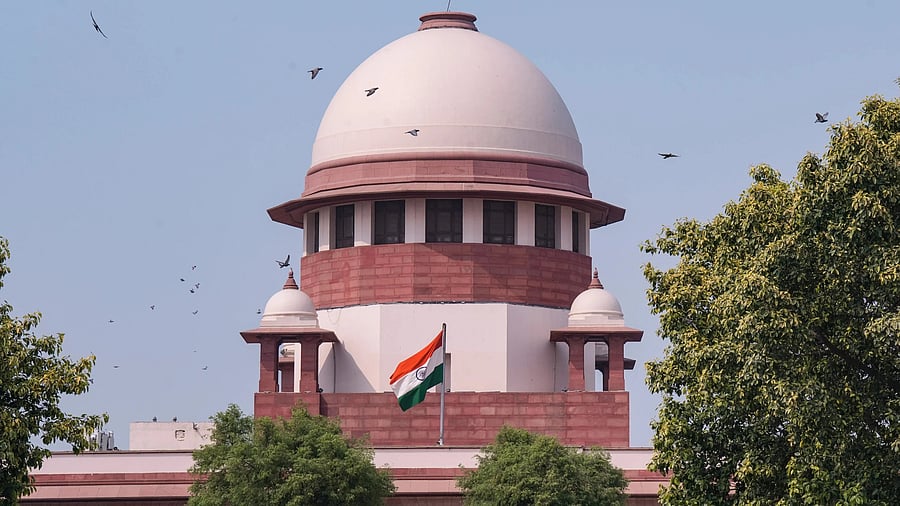
The Supreme Court of India.
Credit: PTI Photo
New Delhi: The Supreme Court on Monday said joining a political party is not akin to employment as it dismissed a plea against the Kerala High Court, which rejected to bring the political parties under the ambit of the Sexual Harassment of Women at Workplace (Prevention, Prohibition and Redressal) Act, 2013 (POSH Act).
A bench of Chief Justice of India B R Gavai and Justices K Vinod Chandran and Atul S Chandurkar said applying the POSH Act to political parties would open a Pandora's box and become a tool for blackmail and misuse.
Appearing for the petitioner, senior advocate Shobha Gupta contended the definition of an 'aggrieved woman' under the Act was a broad one and it was not limited to whether one was employed or not.
She questioned the high court's view that unless employed, the aggrieved woman can't invoke the provision.
The court, however, asked, "How do you fit political parties in a workplace?"
She said this an organisation.
The bench said, "when a member enters the political party, it is not a job. This will open a Pandora's box to blackmail the members".
"Sorry, dismissed," the bench said.
On August 1, the court had refused to entertain a PIL for bringing political parties within ambit of the 2013 law, saying it was a matter of legislative policy.
The bench had then said the court can't interfere into the matter, as this fell within the domain of Parliament.
The court had then suggested the petitioner's counsel senior advocate Shobha Gupta to get some women Parliamentarians on board and present a private member bill.
The counsel had then contended the political parties would constitute "workplace" and "employer" within the meaning of the POSH Act, so they have to comply with the provisions to address sexual harassment of women political workers. She also referred to a Kerala High Court's 2021 judgment, holding the political parties were not required to constitute Internal Complaints Committee under the POSH Act.
The court, however, said the high court's judgment has to be assailed independently.
The petitioner had then preferred to the withdraw the matter.
On December 9, 2024, the apex court had declined to consider the similar PIL by the petitioner asking her to approach the Election Commission as the poll panel is constitutional body that prevailed over and regulated the political parties.
The petitioner contended the women in politics are to be protected and POSH Act has to be made applicable on political parties.
In a separate judgment on May 12, 2023, the Supreme Court has directed for setting up internal complaints committees (ICCs) in all government and private departments and developing SheBox portals where women can lodge complaints as it called for uniform implementation of the POSH Act across states and UTs.
The court had then ordered for conducting a nation-wide survey to identify the public and private institutions which are yet to set up an internal complaints committee (ICC) for handling complaints of sexual harassment at workplaces.
